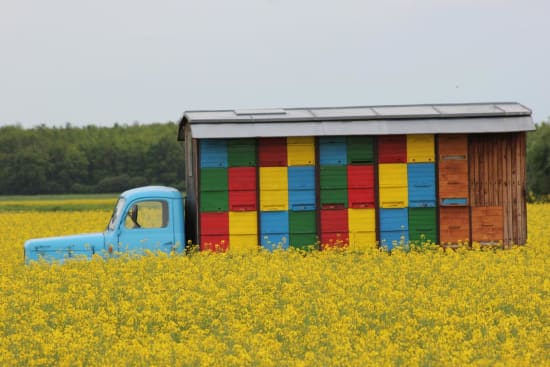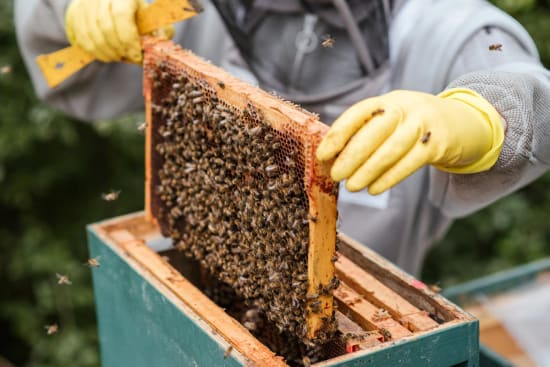In China, wild bees are extinct in many places. The fact that the number of
bee colonies has nevertheless increased is due to commercial honey production.
In order to take maximum advantage of the flowering season of the orchards,
China's
approximately 300,000 beekeepers travel around the country with their hives.
In addition, they have largely replaced the European bees, which are endangered
by the Varoa mite, with Asian bees because they are resistant to the pest.
China: success through transhumance, manual labor and drones
In the Middle Kingdom, wild bees are almost extinct. That's why the Chinese are coming up with a few ideas. Read more about unorthodox measures here.

On the road with beehives

Pollination by hand or drone
In the meantime, however, pollen is also applied by workers with brushes.
This is mainly done by fruit growers who want to guarantee the purity of
their pear and cherry varieties and prevent the pollen of
different varieties from being mixed by uncontrolled flying bees.
Last but not least, the Chinese Academy of Agricultural Sciences reported that recently experiments have also been conducted with drones that spray liquid pollen onto fruit blossoms.
Last but not least, the Chinese Academy of Agricultural Sciences reported that recently experiments have also been conducted with drones that spray liquid pollen onto fruit blossoms.
More exciting topics about bees & honey
World Bee Day? Bee happy!
Why is there a World Bee Day? Why does it take place on May 20? And where can you find excellent honey for your own use? Here are the answers.
Incredible facts that only a few know
Are bees colorblind? How do they alarm when they feel attacked? And can bees «predict» natural disasters? Here are the answers.
China: success through transhumance, manual labor and drones
In the Middle Kingdom, wild bees are almost extinct. That's why the Chinese are coming up with a few ideas. Read more about unorthodox measures here.
Indonesia: biggest bees, dangerous harvest, liquid honey
Indonesia? A wonderland. There you will find the biggest bees, experience the most dangerous honey harvest at dizzying heights and drink the honey because it is liquid.
South Africa: work sharing of two bee breeds and protection of trees
In South Africa, a lot of honey is eaten, which really keeps the two bee breeds found there busy. But apparently bees have other benefits as well.








